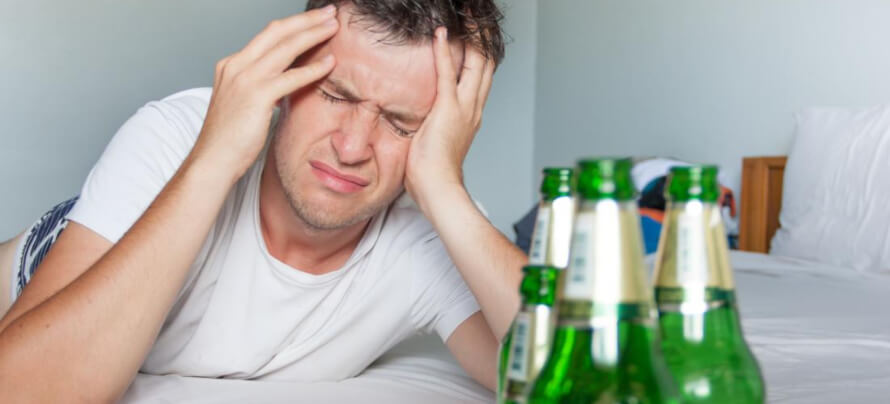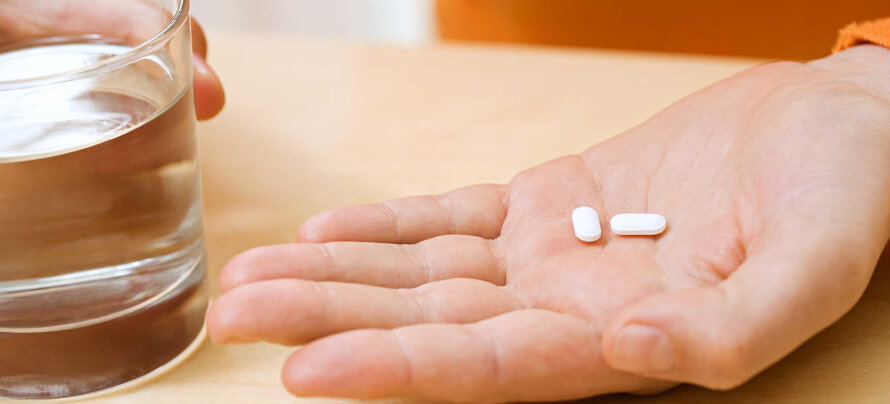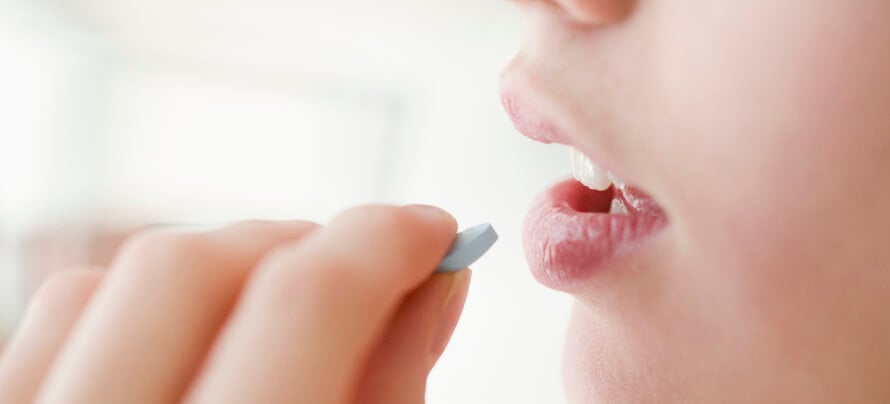Key Takeaways
- Hangover cures refer to supplements, dietary methods, and other tricks to either reduce the severity or duration of hangovers.
- There are no real hangover cures, but there are several methods you can use to limit the negative effects of hangovers.
- Your best options for preventing and reducing hangovers are eating some nutritious food after or before drinking alcohol and taking a few supplements shortly after drinking alcohol.
Here are some fun facts about alcohol:
According to a report published by the World Health Organization, Americans drink an average of 2.3 gallons of pure alcohol per year, or around 657 servings of alcohol per year per person.
If that sounds like a lot, it’s actually only 48th on the list. Belarus tops the charts with a whopping 4.4 gallons of pure alcohol—consumed per person per year.
Pakistan rounded out the bottom of the list with a minuscule 0.025 gallons of alcohol consumed per person per year.
As you can see, us humans like our libations.
You probably don’t need anyone to outline the upsides of alcohol, and we don’t need to go over the list of long-term negative consequences of overdoing alcohol in this article, either.
No, what we’re focused on is the most common and immediate negative side effect of alcohol consumption—hangovers.
Most people who drink get hangovers at one point or another, yet there’s remarkably little good information on what to do about them.
You’ve probably tried most of the apocryphal recommendations: stay hydrated, consume electrolytes, drink coffee, and so on, with mixed results.
Looking for answers online only further muddies the waters, with most sites peddling generic recommendations and obscure herbs with little or no science backing their arguments.
So, what hangover cures actually work?
That’s what you’re going to learn in this article.
It will teach you . . .
- What causes hangovers (or at least what scientists think causes them)
- The five best hangover cures you can try
- Everything you need to know about the only hangover supplements that might work.
- And more.
By the end, you’ll know more about how to deal with hangovers than a senior frat boy at West Virginia University.
Let’s get started.
What Is a Hangover?

A hangover refers to the collection of symptoms you feel the day after drinking.
A general rule for all drugs, especially ones that affect the brain, is “what the drug giveth, the drug taketh away.”
A common example of this is caffeine. While it produces strong stimulatory effects in the short-term, if you become dependant on the drug then it can cause withdrawal symptoms that include extreme fatigue.
A more extreme example is that of opioids, which cause relaxation and pain relief in the short-term but can lead to anxiety and pain if abruptly taken away.
For alcohol, the drop in anxiety and improvement in mood you feel while drunk often translates into greater anxiety and a drop in mood the next day. The increase in social interactions felt while drunk is sometimes met with irritability the next day, and so on and so forth.
Hangovers affect everyone differently, but as a general rule, they follow this pattern.
So, what’s happening inside our bodies that causes this?
Scientists aren’t entirely sure, but the prevailing theory involves two different mechanisms: depletion of stored neurotransmitters in the brain and something known as “refractory sensitivity.”
Neurotransmitters are chemicals that nerve cells use to communicate with one another, and the mix of neurotransmitters being passed around inside our noggins is largely responsible for how we feel at any one time.
When some of these neurotransmitters become depleted, then it can interfere with our mood and cognitive abilities.
Agmatine is one such neurotransmitter that’s released from nerve cells in the presence of alcohol.
Agmatine helps reduce pain and anxiety, and this rush of agmatine is thought to contribute to the anti-anxiety and pain reducing effects of alcohol.
But when the alcohol fades away, agmatine doesn’t get restored immediately. It takes a bit of time and, during which you have to suffer the consequences of blowing through your agmatine stores.
This usually isn’t a major issue for the occasional drinker, but it can result in prolonged anxiety and pain in the case of alcoholism, where constant drinking keeps agmatine levels chronically low.
The other phenomena, “refractory sensitivity”, refers to how when a receptor in the body is forced to activate in one direction the body will attempt to:
- Desensitize this receptor to make it less responsive in the short term.
- Sensitize opposing receptors to make them more responsive in the short term.
This is because the body seeks balance, what we call homeostasis, and it does not like one process going on full speed ahead.
In other words, your brain tries to balance everything out despite alcohol being there. What happens when the alcohol is then removed?
Your body has basically overcorrected and, once it realizes this, then attempts to jerk your physiology back to where it started out. This, unfortunately, leaves you in a temporary situation where your body focused too much on systems that oppose alcohol’s effects (and usually confer the opposite effects) producing withdrawal symptoms.
Both of these processes, the neurotransmitter depletion and the refractory sensitivity, will be corrected with time and neither of them are medically concerning, yet they can cause a lot of discomfort in the meantime.
And that is why we turn to hangover cures.
If you just want the too-long-didn’t-read version of the five best ways to get rid of a hangover, then this is it:
The 5 Best Hangover Cures
- Eat something. This helps slow the release of alcohol into your brain and diminish its negative effects.
- Rehydrate. Consuming electrolytes can help reduce the symptoms of a hangover, but you can get plenty of them from food. If you can’t keep food down, drink some electrolytes.
- Avoid exposure to any stimuli that worsens symptoms, like intense lights and sounds.
- Take some Ibuprofen, Feverfew, or caffeine if you have a headache, but don’t take acetaminophen.
- Find something to distract yourself from your symptoms.
What Are Hangover Cure Supplements?

Hangover cure supplements are a category of supplements that are designed to prevent or diminish the effects of hangovers.
Unfortunately, this isn’t a well-researched field of supplements.
Why?
Probably because helping college kids and lonely adults cope with their hedonism isn’t considered as important as other projects like curing epilepsy, cancer, and the opioid epidemic.
That said, luckily there is some evidence we can parse through to find some answers.
The supplements that have been studied as hangover cures can be broken down into multiple subcategories:
- Supplements that are designed to prevent damage from alcohol in the first place, preventing a hangover by taking the supplement beforehand.
- Supplements that are designed to be taken after drinking to limit the damage the next morning, usually before bed.
- Supplements that don’t focus at all on the damage alcohol does to the body, but instead simply focus on improving productivity and focus the next morning.
Let’s start with what’s the most interesting and contentious category.
Supplements that Prevent Hangovers
Supplements designed to prevent hangovers tend to follow this line of reasoning:
- The hangover is caused from damage caused by alcohol to the body.
- By preventing this damage from happening we can head off the hangover before it has a chance to start.
Supplements in this category are usually antioxidant supplements to support liver health, as alcohol can cause a lot of oxidative damage with much of it concentrated in the liver.
These supplements have one major issue though, and that’s how the state of drunkenness and oxidative damage to the brain are highly correlated. While it‘s a bit too simple to say that “oxidative damage causes drunkenness,” preventing alcohol from affecting the brain will theoretically prevent any alcohol-induced abnormalities to the brain.
In other words, if you block alcohol from damaging the liver and brain by front-loading tons of antioxidants, then you won’t get drunk. If that sounds preferable to you then, perhaps, just omit drinking entirely.
This brain damage isn’t permanent (unless you’re an alcoholic), but it’s not avoidable, either. It’s also not entirely clear how effective megadosing antioxidants really is for this purpose.
Out of all categories listed in this article, this category is where most snake oil lies. As almost anything in existence can be claimed to be an antioxidant almost anything can be claimed to prevent hangovers, which is a recipe for a lot of fraud.
The only way this kind of supplement would be effective is if you were able to reduce oxidative damage in the liver, thus limiting some of the negative effects of the hangover, but allowing oxidative damage to the brain, thus allowing you to get drunk.
So far nothing like this exists, which means you can more or less ignore antioxidant hangover cures.
Antioxidant hangover cures aren’t well proven, and if they do work then they’re also going to reduce the positive effects of alcohol as well. It’s best to avoid them.
Supplements that Repair Damage
Supplements that aim to repair damage follow this line of reasoning:
- Some damage to the body is unavoidable when you get drunk.
- It’s better to repair the damage done to the body after getting drunk than try to prevent the insult from occurring.
Given the connections between oxidation and the state of drunkenness, this strategy seems much more workable.
If taken before bedtime with a snack, then these supplements could work their magic through the night, leaving you much more refreshed the next day.
However, supplements in this category are limited. Milk thistle is really the only option we have, and by extension the lesser known herb Picrorhiza kurroa which works through similar mechanisms.
Furthermore, as outlined in this article on milk thistle, it’s important that milk thistle is not taken before drinking as the benefits could be reversed.
I do believe that these supplements can be useful when taken after drinking and before bed, and they can even be paired with a sleep aid since the mere act of getting good sleep can help reduce hangover symptoms the next day.
Unfortunately, however, as milk thistle is more targeted towards the liver and not as much towards the brain I can’t say with any assurance that these things will actually prevent a hangover.
It’s healthy, sure, but what about something a bit more practical?
Milk thistle and a lesser known herb called Picrorhiza kurroa can effectively heal some of the effects of hangovers if taken soon after drinking.
Supplements that Improve Function
There is nothing more practical than waking up, seeing if you even have a hangover to start with (why fix problems that aren’t there, after all) and then supplementing accordingly.
This is best shown by people who have a coffee when they have a hangover. This is either simply due to habit or due to how caffeine can actually help reduce headaches (by reducing cerebral blood pressure). Its efficacy is great enough that it’s sometimes recommended for migraine sufferers.
Caffeine is a bit of a mixed bag here, since people who don’t take it often will benefit much more than people who take it frequently. If you don’t drink often, but get headaches the next morning, it may be worth reducing your overall caffeine intake so the post-hangover coffee works better.
Either that or you can opt for other options. Feverfew is a decent option for headaches, if we wish to stick to supplements, but Ibuprofen can work well, too.
Just a quick note here—I caution against using acetaminophen for hangovers. This drug has a highly toxic metabolite known as NAPQI which is normally produced in such small amounts it‘s never relevant. Production can be increased under certain conditions, like ketosis, and the “trifecta of liver damage” is:
- You have just finished a night of drinking
- There was purging during the night, stressing the body
- Acetaminophen is taken on an empty stomach either after drinking or the next morning
If you must use acetaminophen then have breakfast with some carbohydrates first, wait a while, then take it. However, due to the existence of Ibuprofen, it’s easier to just take that.
Beyond headaches other potential issues you may run into with hangovers include light sensitivity, sound sensitivity, irritability, anxiety, and in some cases transient apathy.
Light and sound sensitivity are difficult to supplement for, and the best recommendations are to get as good a sleep as you‘re able to and then use either sunglasses or earplugs to wait it out.
Irritability and apathy don’t have any proven interventions, but may be linked to agmatine signaling in the brain. I can’t promise agmatine supplementation will work in this scenario but, hey, might be worth a shot if you become the grinch after drinking.
For anxiety, the current theory is that it’s related to glutamate-rebound—a transient increase in glutamate during hangovers that eventually normalizes. In this scenario, the only direct potential “cure” would be something that reduces glutamate signaling in the brain a tad which would be N-acetylcysteine.
Ultimately, supplements that target specific symptoms of a hangover and are taken in response to said symptoms hold the most promise. However, they don’t prevent a hangover but rather treat it.
Should I Use Hangover Supplements?

To start with, I wouldn’t really recommend hangover supplements to people in their 20s who don’t drink that much in the first place.
When using drugs sometimes we need the drug to punch us in the face at times. It’s quite humbling, and if amphetamine never had any withdrawal effects (and only the high) then I’m pretty sure it would replace caffeine as the most used drug in existence.
So, if you don’t experience hangovers all that often then it’s best to get used to their pain so some level of respect can form for alcohol’s dangers. I know I may be a cautious prude right now, perhaps a sign of getting older, but drugs that could ruin your life need respect.
Alternatively, young people sometimes simply don’t get hangovers unless they go completely end-of-exam-time bonkers so there would simply be no need for these supplements.
On the other end of the spectrum, if you get hangovers every morning then . . . maybe it’s time for you to call somebody and ask for help. Even a high functioning alcoholic is still an alcoholic and the only shame in that is letting it continue—a drug impairing your judgment centers of the brain, and thus gaining control via hubris, is a pretty bad combo.
Now, for a practical takeaway, I would recommend some hangover supplements to people who drink infrequently but still experience hangovers that they find debilitating. This is usually middle-aged individuals or people with minor liver damage.
I would recommend milk thistle to be taken after drinking, with a small snack, and based on your experiences with hangovers and what particular side effects you feel debilitating some supplements in the morning with your coffee.
N-acetylcysteine is a good option if you have refractory anxiety and perhaps consider agmatine if you have a degree of apathy and increased pain perception. Caffeine works wonders for pressure headaches in the short term.
The Bottom Line on Hangover Cures
I wouldn’t be good at my job if I recommended you drink alcohol, but I really doubt anybody would listen either—drinks are fun, just drink in moderation.
When you want a supplement to help with a hangover then don’t put too much faith in the antioxidant bundles sold with a new label every year directing you to take before drinking. These supplements are usually ineffective or underwhelming and there’s a great chance you’ll be buying snake oil.
Supplements and other methods used after drinking hold some promise (if you’re sober enough to remember to do them) and beyond just nursing a Gatorade before bed, having some milk thistle with a small snack can help. However, saying this “prevents” hangovers isn’t entirely true.
The most promise remains with targeting specific symptoms the morning after, but despite the promise of these supplements they don’t prevent a hangover nor cure it—they simply help you function better until the hangover goes away.
There’s no real supplemental “cure” for hangovers despite the plethora of articles out there saying there is. However, there are definitely ways to manage them better and most of them start with a snack and some water.










